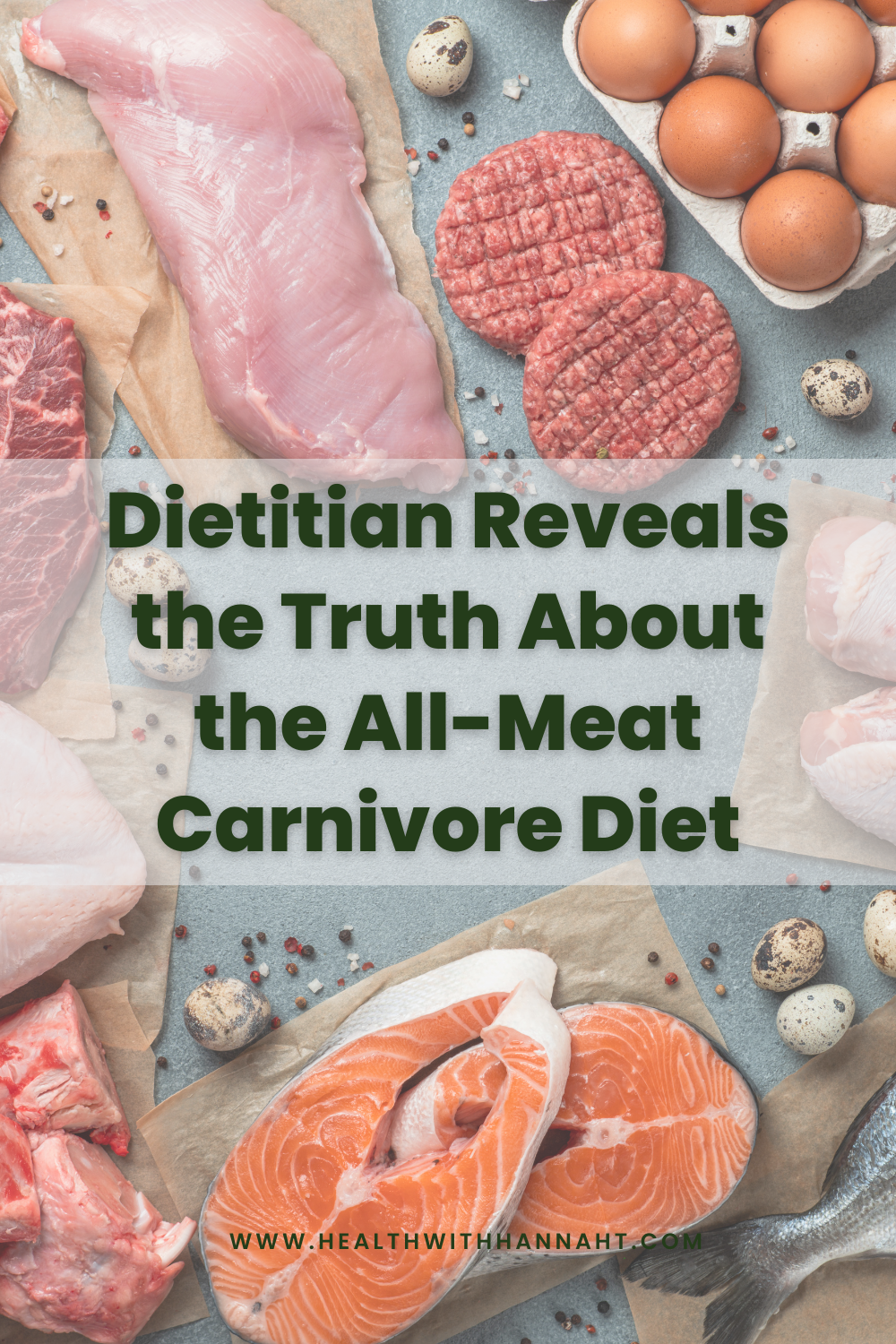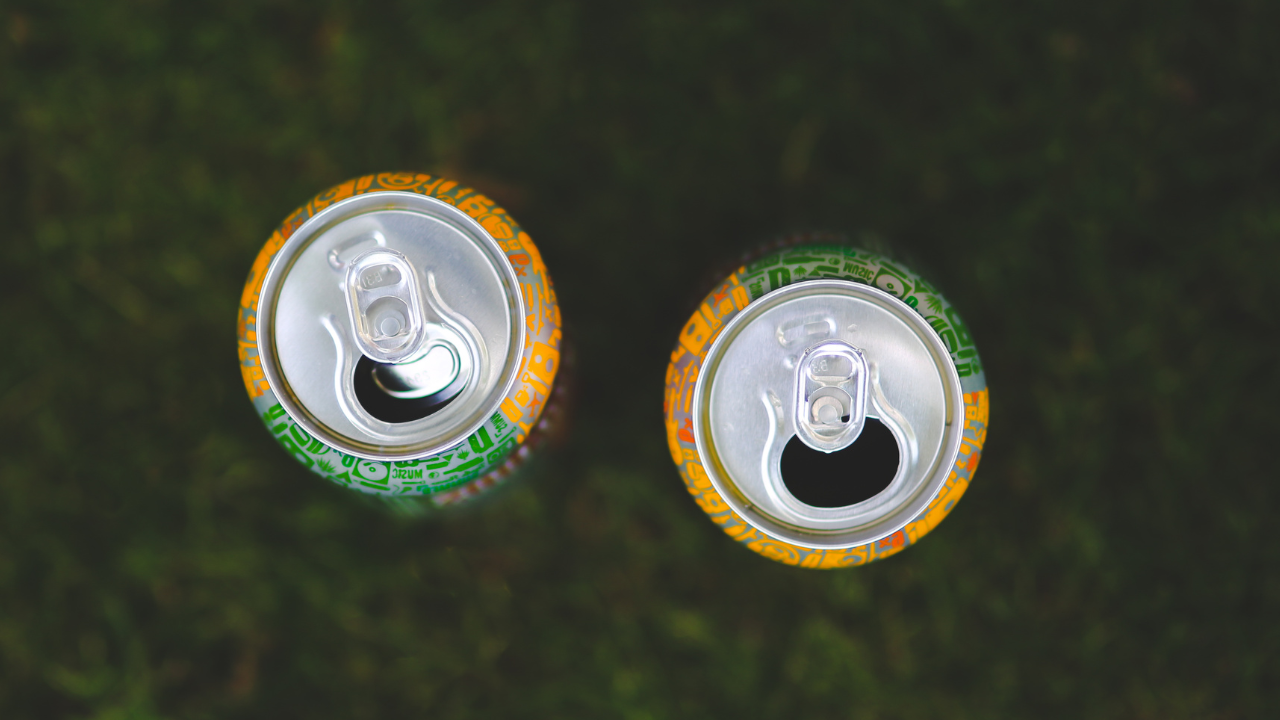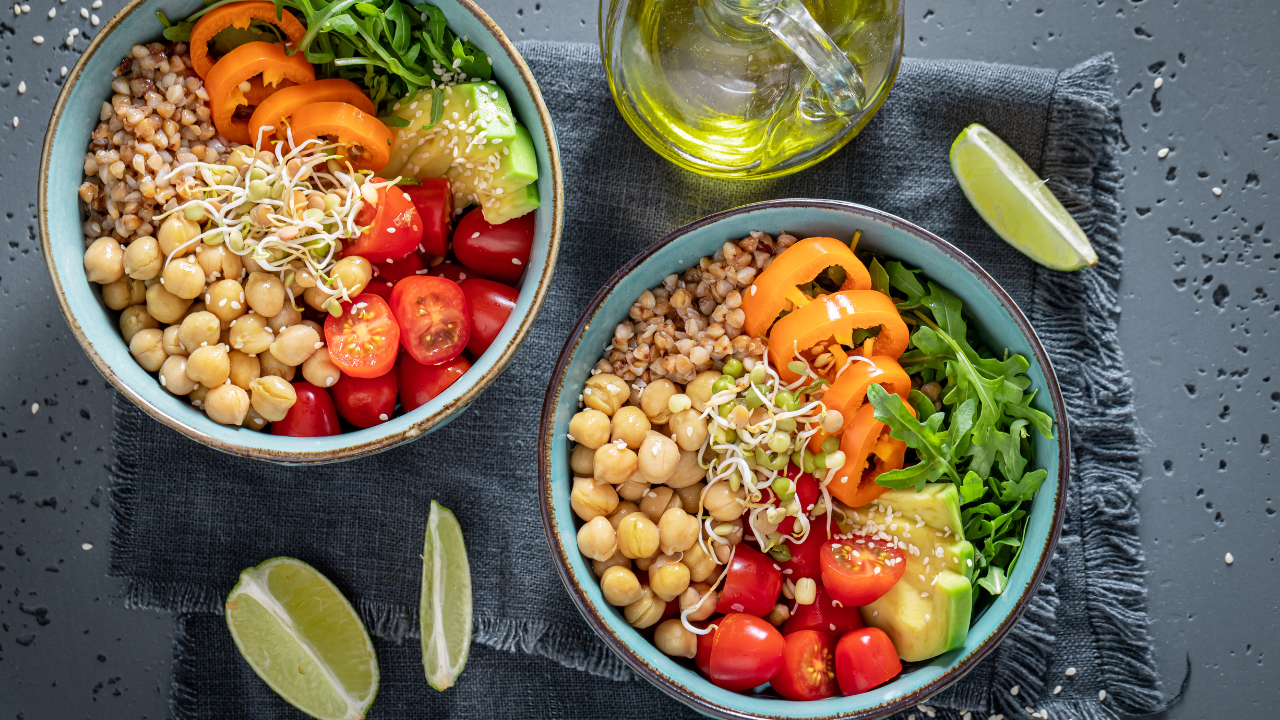Dietitian Reveals the Truth About the All-Meat Carnivore Diet
I can’t believe I have to say this, but vegetables are good for you. However, if you ask advocates of the carnivore diet, they will strongly disagree.
Carnivore diet proponents believe that vegetables, fruits, legumes, and grains contain “antinutrients” and that carbohydrates are toxic. For these reasons, they recommend a zero-carb diet consisting only of animal products. But is this really as healthy as they claim?
If you’re new here, hello and welcome! My name is Hannah and I am a non-diet dietitian and personal trainer here to help you improve your relationship with your food and exercise and finally find food freedom.
Table of contents:
What is the carnivore diet?
You’ve probably heard of the keto diet (unfortunately, none of us are strangers to the low-carb movement), but the carnivore diet takes anti-carbohydrate it to a whole new level.
The carnivore diet involves eating only animal products. This includes foods such as beef, seafood, poultry, and eggs. Carnivore dieters like the Liver King will even go as far as to eat their meat, organs, and eggs raw. Although if you ask me, this is usually just rage-bait for clicks on social media.
Some say that raw dairy is allowed on the carnivore diet, but others avoid it because lactose is a carbohydrate. Bone broth is usually encouraged, but tea, coffee, and other drinks made from plants need to be cut out.
Is the carnivore diet healthy?
I’ve done many diet reviews, but the carnivore diet may be one of the most extreme thus far.
I am not one for telling others what they should do with their bodies. Only you can decide what is “healthy” for you. As a dietitian, my role is to help you evaluate the potential risks and benefits of diets and food choices.
Many claim that the carnivore diet is healthy for them. Some of the most well-known advocates of the carnivore lifestyle are Shawn Baker and Paul Saladino, both medical doctors in the United States. If a doctor says a diet is healthy, it must be… right?
Let me remind you that medical doctors are not typically trained in nutrition. More specifically, Saladino is a psychiatrist. I personally find this ironic considering he is undeniably promoting disordered eating habits. Perhaps he did not listen during the lectures on eating disorders.
As for Baker - his medical license was revoked in 2017 due to concerns about his competency. It was reinstated in 2019 with stipulations. I believe in second chances, but are we really going to take his advice when it comes to nutrition? Just because he has abs does not mean that he knows what he’s talking about.
Both of these doctors also sell books promoting the carnivore diet. Of course they are going to say that this diet is the best. Gotta make those sales!
The point is that just because someone says a diet is healthy (even if they are a medical professional), this does not mean that the diet is actually what is best for you. While Baker and Saladino may truly feel like the carnivore diet is what works for them, it is poor taste to shame others for eating carbs.
Is the carnivore diet evidence based?
Although the carnivore diet influencers make very bold claims around nutrition, the diet has yet to see the support of long-term quality evidence.
There are many proposed benefits of the carnivore diet, including reduced inflammation, increased testosterone levels, improvements in arthritis, protection against disease, and more. Here’s the thing - all of these claims are anecdotal and have not been proven in scientific research. That’s really all there is to say about that.
Of course, the carnivore diet is also often touted as solution for weight loss. It makes sense - following a very restrictive diet will almost always lead to weight loss. This is not revolutionary. Any diet can result in weight loss if it creates a calorie deficit. The carnivore diet is also high in protein, which may help people feel fuller for longer. Furthermore, rapid weight loss is expected when cutting out carbs as your body depletes glycogen and water stores.
But will the carnivore lead to sustainable weight loss? That’s another story. Most people cannot sustain such restrictive diet habits, to no fault of their own. Our body has many compensatory mechanisms in place to combat restrictive diets. If you have ever “failed” a diet, it is not your fault. The diet was set up for failure.
What are the arguments for following a carnivore diet?
Carnivore advocates make many claims about why their diet is the best.
“Your body can make carbs on its own”
This argument is pushed on all sides of the anti-carb movement, not just by carnivore dieters. It is true that the body can use protein and fat to make glucose (carbs) for energy. However, this is far from ideal. Gluconeogensis (making glucose from non-carbohydrate sources) is a backup plan for when your body does not have enough carbohydrates for energy.
“Plants have defense mechanisms”
Saladino states on his website, “Plants do not want to be eaten. They must defend their roots, stems, leaves, and seeds with defense chemicals to pass their genes on to the next generation.” You could also argue that animals do not want to be eaten. In the wild, animals flee their predators or fight back. While I am by no means a vegan or against eating meat, I can admit that animals have more feelings than plants.
We have gobs of research that shows eating more plants is associated with lower mortality and decreased risk of many chronic diseases. While animal products can also be included in a healthy diet, most people are not eating enough fiber from plants and demonizing them seems very silly.
“This is what our ancestors ate”
This one always gets me. “Our ancestors did not eat refined carbohydrates so we shouldn’t either!” Our ancestors also did not have plumbing or WiFi and they died much younger than we do now. Humans learn and things evolve. Next.
What are the risks of the carnivore diet?
The carnivore diet likely comes with more risks than benefits. Here’s a few reasons why I discourage following the carnivore diet:
High risk of nutrient deficiencies
One large benefit of eating fruits, vegetables, and other plants is that they are very nutrient-dense and provide us with so many vitamins and minerals. While animal-products also have micronutrients, those following the carnivore diet will have a much more difficult time obtaining the nutrients that they need.
Your diet will be void of fiber
@dietitianhannah Replying to @ollyren good poops only in 2024 💩 #fiber #breakfast #chiajam #chiajamrecipe #highfiber #highfiberfoods #highfiberbreakfast #dietitian #dietitiantips #dietitianhannah #gentlenutrition #nutritiontips ♬ original sound - Dietitian Hannah
Fiber is only present in plants (including legumes, grains, fruits, vegetables, nuts, and seeds). Most Americans are not eating enough fiber - even those who do not follow the carnivore diet. Many people who follow a keto or carnivore diet struggle with irregular and uncomfortable bowel habits.
Increased risk of heart disease
An animal-based diet tends to be high in saturated fats, which may increase the risk of high cholesterol and other heart disease. While different people respond differently to saturated fats, the carnivore diet if far from a moderate intake of this nutrient.
Plus, the lack of fiber may also play a role on heart health. Soluble fiber can help to lower LDL cholesterol levels. Soluble fiber absorbs water in the stomach to form a thick, jelly-like mass that moves through the intestines and “grabs” cholesterol to be excreted.
Low energy levels
Carbohydrates are our bodies preferred source of energy. When we don’t eat enough carbohydrates (or calories overall), low energy levels are often the result.
Cutting carbs also tends to result in increased carb and sugar cravings. No, this is not because you “lack willpower”. Your body is just telling you what it needs!
Increased risk of disordered eating and eating disorders
Dieting of any kind increases the risk of developing an eating disorder, and the carnivore diet is no exception. If you have a history of eating disorders, it is strongly encouraged to avoid this diet.
Following the carnivore diet can lead to feelings of social isolation, as you will not be able to eat the same things your friends and family are eating. Cake at your bestie’s birthday party? Not allowed. Happy hour with your coworkers? Alcohol is made from plants. And any carbohydrate-containing appetizers will be out of the question.
Most dieters experience rebound eating and find themselves caught up in the restrict-binge cycle. This is a normal response to dieting, albeit uncomfortable. The best way to break this vicious cycle is to break up with dieting.
Environmental concerns
Some have raised environmental concerns that accompany the carnivore diet. While I personally do eat meat and dairy and encourage others to do the same if they would like, this is far different than an all-meat diet.
Cost
Diet culture is nothing if not elitist. Meat is expensive. In many cases, plant-based foods may actually be more affordable than following an all-meat diet.
Furthermore, carnivore dieters are encouraged to choose “grass-fed” and “ethically sourced” proteins, which will only increase the grocery bill.
Alternatives to the carnivore diet
I would be remiss to say “don’t do the carnivore diet” without providing alternatives. While animal-based products can be included in a balanced diet, carbohydrates can too. It does not have to be one or the other. All-or-nothing approached to nutrition rarely are sustainable.
In general, I encourage a variety of protein, carbohydrates, and fats. And in what amounts? I know this answer is frustrating, but it depends! Check out this post to learn about how to choose what to eat without food rules.
There is no universal “perfect” diet for everyone. This is why I recommend an intuitive eating approach, which can be adapted from person to person. There is no “right” or “wrong” way to practice intuitive eating. Learn more about this anti-diet approach here.
Bottom line
As a dietitian, there has yet to be a situation where I would recommend the carnivore diet. And I don’t foresee it happening anytime soon.
The carnivore diet is unnecessarily restrictive and cuts out foods that most people are not eating enough of as it is (fruits, vegetables, and legumes).
What are your thoughts on the carnivore diet? Leave a comment below!
Disclaimer: this post is for informational and educational purposes only and is not a substitute for professional medical advice.
Follow along
Featured videos
Want more help on your diet ditching journey?
Join my signature membership to become part of a community of ex-dieters working towards food freedom and making peace with food so they no longer need to cut out their favorite foods.

































